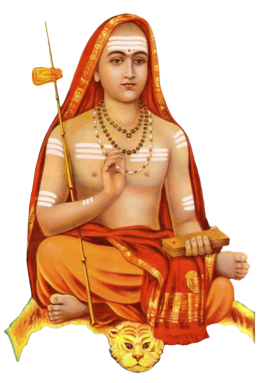मनश्चक्षुरादेर्मनश्चक्षुरादिः ।
मनश्चक्षुरादेरगम्यस्वरूपः
स नित्योपलब्धिस्वरूपोऽहमात्मा ॥ ७॥
manaścakṣurādermanaścakṣurādiḥ .
manaścakṣurāderagamyasvarūpaḥ
sa nityopalabdhisvarūpo’hamātmā .. 5..
English Translation and Notes based on the Bhashya of Sri Sankara
Translated by S. N. Sastri
The Self is different from the mind and organs, that is to say, from the gross and subtle bodies. The external objects are experienced by the mind through the sense organs. The mind and the sense organs are clearly seen to be different from the experienced objects. By the same reasoning, the Self which illumines the mind and the organs must necessarily be different from them.
It is only by the light of the Consciousness that is the Self that the mind and organs, which are themselves insentient, perform their functions of thinking, seeing, hearing and so on. This is why it is said in this verse that the Self is the mind of the mind, eye of the eye and so on. This is based on the Kenopanishad which says:–
“He (the Self) is the ear of the ear, the mind of the mind, the speech of speech, the vital air of the vital air and the eye of the eye” (1.2).
The mind and the organs of sense can experience only external objects. They cannot know the Self. The mind has by itself no consciousness, but appears to be conscious only because of the reflection of the consciousness of the Self on it. The sense organs also derive their apparent sentiency only from this reflected consciousness. This being so, it is obvious that the mind and organs cannot know the Self.
Now the question arises: if the Self cannot be known by the mind and the senses, how can it be realized at all? The answer is given in verse 6.
Hastamalakiyam – Verse 5 – Hastamalaka-5-manaścakṣur – In Sanskrit with English Transliteration, Translation, Meaning and Bhashya – Commentary by Sankaracharya – Hastamalakiyam-5

